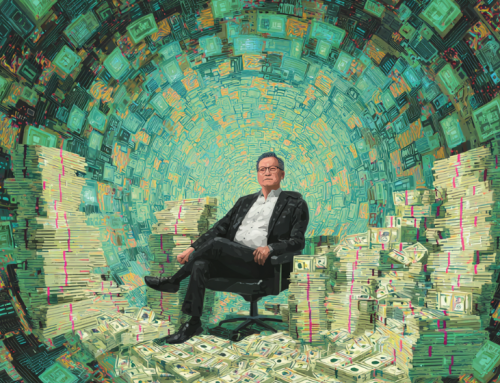
In 2014, entrepreneur Elon Musk echoed the worries of leading artificial intelligence theoreticians in an ominous warning that unchecked development in AI would be akin to “summoning the demon”.
The coming decades will very likely lead to massive socioeconomic shifts as machines approach human and super-human abilities and these AI systems displace most of the existing human workforce . For some theorists, this unprecedented tectonic shift in human society looming just over our horizon will portend scenes of revolution, warfare, and mass poverty.
But what if, far from “summoning the demon”, the future world of AI will instead lead to an era of heretofore unparalleled prosperity and abundance? One possible means of avoiding social upheaval in the wake of an AI revolution –and a solution Musk endorses– would be to use the vast surplus of economic output to guarantee a universal basic income.
What would this mean for human life as we know it? Can AI make a “citizen’s income” possible and lead to an era of human “flourishing” where people have the guaranteed time and economic safety net to pursue life entirely on one’s own terms? In a world where human worth is effectively no longer monetized, could the AI revolution make us more human?
Guardian columnist and Anglican priest Giles Fraser investigates:
Semi-automated truck convoys are soon to be tested on UK roads. Perhaps, one day, human beings won’t be allowed to drive. Perhaps it will be considered too risky to put an easily distractible human being in charge of a ton or more of fast-moving metal. Future generations may think of driving as terrifyingly retro.
It’s yet another example of a pressing existential question, as well as an economic one. When clever robots have taken most of our jobs, how will we live and what will we live on? For these Meccano scabs are not only going after the repetitive tasks of the long-distance lorry driver or factory workers. Once they pass the Turing test and can successfully fob themselves off as human beings, jobs that used to require a university degree will be just as much at risk. Human beings are fast heading for obsolescence.
Optimists argue that new jobs will be created, just like they were during the Industrial Revolution and the computer revolution. After all, if no one has a paid job, who will be buying all the stuff that the robots are busy making? Others suggest that with all this robot-led productivity, societies will become rich enough to pay their populations a citizen’s income – that is, provide everyone with an unconditional sum of money to live on, irrespective of whether they work or not. This is an idea that may be approaching as fast as the driverless car. From the Trump-supporting tech CEO Elon Musk to the lefty Greek politician Yanis Varoufakis, the idea of a basic citizen’s income draws support from across the political spectrum.






